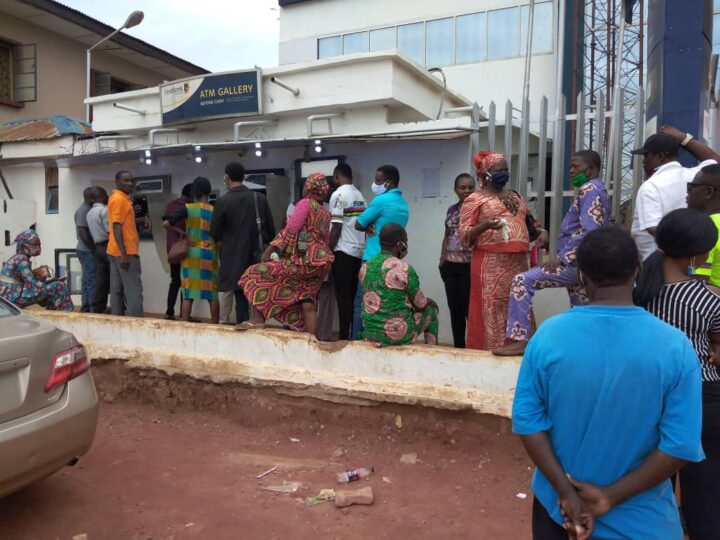BY OLUWOLE OSAGIE–JACOBS
It is common knowledge that the Nigerian economy is passing through perilous times. The economy which is the engine of the government has dipped precipitously due to the significant drop in the international price of crude oil and the COVID19 pandemic. Statistics from the Nigeria Centre for Disease Control (NCDC) as at September 9th, 2020 shows that there are 55,456 confirmed cases of COVID19 in the country, 43,337 have been discharged and 1,067 are dead. The country has had to lock down, thereby shutting down business activity significantly.
The economy now plods on listlessly with no redemption in sight. The cost of basic necessities like food, clothing, healthcare, education and shelter has gone up. This has sent ripples of discontent among the people as their ability to meet financial obligations has been severely undermined. Private businesses have been severely deflated. Advanced economies are not spared. The omnipresent virus has laid them prostrate. The whole world is under captivity. The pains endured are so chronic and virulent that I now better appreciate the reverses suffered by Job in the bible.
In response to the harsh economic condition now experienced by Nigerians, the government through the Federal Inland Revenue Service (FIRS) has come up with a lot of tax incentives to cushion the harsh effect of the economic meltdown on the citizens. A tax incentive has been defined as “a form of a reduction of or an exemption from, the tax which somebody or an organization would normally be liable”. It should be recognized that high level of inflation currently endured by the citizenry is an unplanned taxation. This has been made known by the American economist, Professor Milton Friedman (1912 – 2006), in his famous statement that “Inflation is the one form of taxation that can be imposed without legislation”. Therefore, tax incentives whose goal among others is to attract investment, increase employment, raise capital transfer, increase economic growth, must in addition decimate inflation.
Advertisement
Perhaps the most far reaching palliative is the taking away of about 60% of the tax base by the Finance Act, 2019. The Act excludes companies with less than N25 million turnover in a year from tax. The implication is that about 60% of those who should pay tax will not do so. Also, about 60% of people who are supposed to act as agents for the remittance of Value Added Tax (VAT) monthly are relived of this duty. Companies in this bracket include a large number of Small and Macro enterprises. We must commend the government for this concession because from my over thirty years experience in audit assurance this is a palliative overdose. The truth is that only few of Nigerian businesses preparing accounts for tax purpose disclose a turnover of above N25 million. Many of these companies don’t prepare accounts for auditing. Those who prepare accounts do so because they intend to participate in the bidding for government contracts. This Act has excluded from tax payment about 90% of the traders in Alaba market in Lagos, Onitsha market, Ariaria market, Aba and the big merchants in kano. They will only be liable to rates and levies.
The Finance Act, 2019 reduced Company Income Tax rate to 20% for companies with a gross turnover of above N25 million but below N100 million. This is a big relief to companies covered by this provision.
The Service has eased the burden of the payment of Stamp Duty on rent as such payments are now graduated with minimal rates. For example, if the tenure of a rent is between 1to7 years, the rate applicable is 0.78%. It means for a rent of N100,000 per annum the tenant will be liable to pay N780 only. You are not going to pay Stamp Duty on your own house if you live there. The payment is to legalize the Agreement between you and your landlord. Furthermore, the service has announced plan to give relief to individuals who should pay Stamp Duties on rent to corporate organizations and promised to extend this to the jurisdiction of states’ Internal Revenue Service.
Advertisement
The furor which arose after the announcement of Stamp Duty on rent payment was unfounded. Stamp Duty came into effect vide Ordinance 41 of 1939. It is payable in respect of dutiable instruments like MoUs, Agreement Contracts, Receipts, Promissory Notes and Insurance policies.
An incentive on the filling of returns is the Late Returns Penalty waived for taxpayers who paid early and filed later. This allowed supporting documents to be emailed to dedicated addresses or submitted later to the tax offices by those who are unable to use the email facility.
Remittance of VAT on or before the 21st of every month was extended to the last day of the month. Taxpayers who earned their income in Naira or Dollar are required by law to pay their liabilities in the same currency the income was earned. For good measure, the FIRS offered a palliative to taxpayers who earned their income in Dollars and faced challenges in sourcing for forex to offset their tax liabilities. They were given the option of paying in Naira at the prevailing Investors’ and Exporters’ (I &E) Forex window rate on the day of payment.
In respect to tax Audit, Investigations and Monitoring, visits were suspended till June, 2020 and all interest and penalties on additional tax liabilities which arose as a result of desk review, tax audit and investigation were waived provided the tax liabilities are paid on or before the 31st of August, 2020.
Advertisement
To encourage Agricultural Production a new tax regime of eight years tax holiday has been instituted to encourage crop production and animal husbandry.
Other incentives include the following: the exemption of Personal Income Tax in respect of gratuities payable to an employee in the private sector in respect of services rendered by him under a contract of service with his employer; and the exemption from Capital Gains Tax on the sums obtained by way of compensation for loss of office, except where the amount of such compensation or damages exceed N10 million in any year of assessment.
It is rather unfair to allege that the FIRS is apathetic to the pain and suffering of Nigerians and businesses operating under the current economic situation. It should be noted that Nigeria is the largest economy in Africa but in terms of Tax to GDP ratio, Nigeria is among the least in Africa. The figures for some African countries are: Algeria (35%), South Africa (29%), Ghana and Kenya (18%). That of Nigeria is as low as (6%).
An analysis of the telecoms industry now trending on social media is both confounding and revealing. It would be noted that the same Nigerians shying away from tax payment hold 250 million active SIM cards. About 72 million Nigerians recharge their cards every day. Nigerians spend about N446 billion to recharge their cards in a month. Nigeria’s investment in the telecoms industry in a year is N21.4 trillion. The Nigeria Communications Commission (NCC) says Nigerians spend more on telecoms than on health and food. The amazing thing is that most of these GSM activities by Nigerians are very unproductive.
Advertisement
The FIRS has expressed confidence that the above incentives together with those in the Finance Act, 2019 would aid economic recovery and stimulate growth of Nigerian businesses during and post COVID 19. It is therefore expected that Nigerians will take maximum advantage of these incentives.
Oluwole Osagie–Jacobs is an economist and chartered accountant
Advertisement
Views expressed by contributors are strictly personal and not of TheCable.
Add a comment






